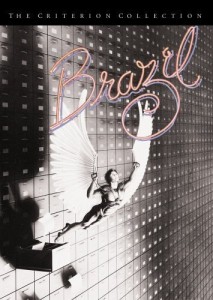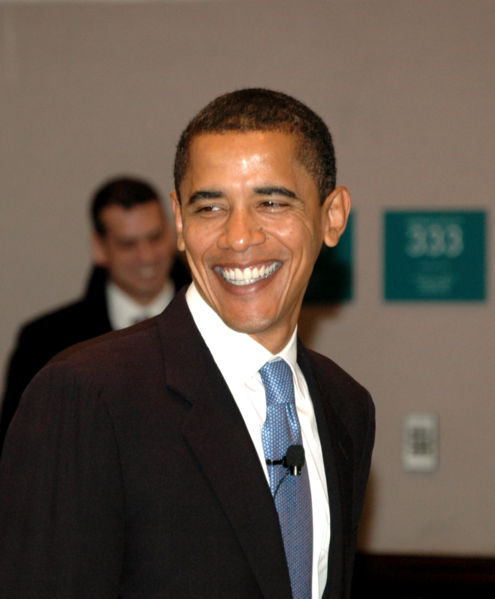 The New York Times reports a ridiculous case that was heard by the Supreme Court, which seems to come right out of the movie Brazil, in which a combination of events leads to a defendant in a capital murder case losing his rights to appeal in the state of Alabama. According to the article, a court had sent its ruling to two associates at a firm in New York who had work on behalf of defendant Cory Maples. The problems started when the associates left. The firm then returned the judgment to the court marked “returned to sender”. The court clerk received the envelope and did nothing. The local counsel of record also failed to follow up with the appeal. Eventually, the window that defendants have to file appeals elapsed, at which point the prosecutor seemingly gloated directly to Mr. Maples.
The New York Times reports a ridiculous case that was heard by the Supreme Court, which seems to come right out of the movie Brazil, in which a combination of events leads to a defendant in a capital murder case losing his rights to appeal in the state of Alabama. According to the article, a court had sent its ruling to two associates at a firm in New York who had work on behalf of defendant Cory Maples. The problems started when the associates left. The firm then returned the judgment to the court marked “returned to sender”. The court clerk received the envelope and did nothing. The local counsel of record also failed to follow up with the appeal. Eventually, the window that defendants have to file appeals elapsed, at which point the prosecutor seemingly gloated directly to Mr. Maples.
The only good news in this case is that the Supreme Court is now hearing it, and at least in oral arguments they seem to have been as incensed at the callous treatment of a defendant as one would hope they should be.
So now my questions, and I have many:
- Why is it that this case had to get to the Supreme Court in the first place? Is administrative incompetence grounds for rushing to kill someone?
- Does the current state of law and societal view towards prosecutorial discretion need correction? Here, in a case where the prosecutor clearly could have weighed in to prevent a travesty, he instead seemingly chose to gloat. Doesn’t that argue for stronger judicial oversight?
- Should there be sanctions against the local lawyer who failed to at all follow up in a death penalty case?
- In this case, how broadly should the Court rule? They could simply state that the confluence of events led to a perverse situation that requires redress, and narrowly rule, or they could require that states shoulder at least some burden to see that defendants are receiving fair treatment. What would that look like?
- If this is what happens in death penalty cases, what sort of miscarriages of justice are taking place in other cases, and how do we know?
What do you think?

 After my last lengthy spewage about Foreign Policy, I figured I’d take on something a little more straight forward. One of the largest and most lasting powers a president has is his ability to appoint judges to courts, and justices to the Supreme Court. The issues surrounding the courts are not just abortion, but privacy, freedom of speech, freedom from religion, gun control (or lack thereof), and the ability of the government to protect our environment for the next generation, just to name a few.
After my last lengthy spewage about Foreign Policy, I figured I’d take on something a little more straight forward. One of the largest and most lasting powers a president has is his ability to appoint judges to courts, and justices to the Supreme Court. The issues surrounding the courts are not just abortion, but privacy, freedom of speech, freedom from religion, gun control (or lack thereof), and the ability of the government to protect our environment for the next generation, just to name a few. The current administration placed Samuel Alito and John Roberts onto the Supreme Court, making it the most conservative court in well over a century, probably dating as far back as the Plessy v. Ferguson decision, which give you some idea just how far backwards we have gone. The next administration will likely see at least one Supreme Court nomination in the next four years. Justice Stevens is 88 years old. It’s almost hard to imagine how the court could shift to the right any further ith Anthony Kennedy, a Reagan appointee, considered the center of the court, but that is precisely what could happen.
The current administration placed Samuel Alito and John Roberts onto the Supreme Court, making it the most conservative court in well over a century, probably dating as far back as the Plessy v. Ferguson decision, which give you some idea just how far backwards we have gone. The next administration will likely see at least one Supreme Court nomination in the next four years. Justice Stevens is 88 years old. It’s almost hard to imagine how the court could shift to the right any further ith Anthony Kennedy, a Reagan appointee, considered the center of the court, but that is precisely what could happen. Barack Obama is a lawyer and has tought at the University of Chicago. He is pro-choice, and in general has a more studied approach that is not subject to the strictness of ideology. This in part leaves me uncomfortable. However, given the two individuals in play, the choice is clear. McCain scores a whopping F and a low one at that on his handling of the court, while we’ll give Obama a tentative B, with perhaps as much as 70 points between them on this issue.
Barack Obama is a lawyer and has tought at the University of Chicago. He is pro-choice, and in general has a more studied approach that is not subject to the strictness of ideology. This in part leaves me uncomfortable. However, given the two individuals in play, the choice is clear. McCain scores a whopping F and a low one at that on his handling of the court, while we’ll give Obama a tentative B, with perhaps as much as 70 points between them on this issue.